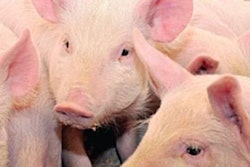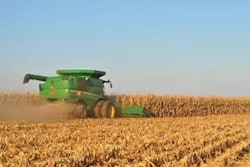Work on The Evolution of Host Specificity in the Vertebrate Gut Symbiont, Lactobacillus reuteri was awarded the Jules Tournot Probiotics Prize 2014 by the European Probiotics Association at 2014 EuroTier.
Steven A. Frese, of the University of California, was present to receive the award and talked attendees through his work.
Lactobacillus reuteri is commonly found in the gastrointestinal tract of poultry, pigs, and rats, among other species, he explained. The organism has evolved to be host specific and different strains have different qualities. For example, strains found in the gastrointestinal tract of chickens tend to have greater antimicrobial qualities, while the strain more commonly found in the human gastrointestinal tract has greater anti-inflammatory qualities.
The study was the first time that host-specificity had been demonstrated, and the importance of the study is that using the approach followed by Frese in the study could allow the more careful of selection of bacteria for use in future probiotic products.
Growing interest
This year saw a higher number of submissions than the last time the award was made in 2012. Of the 19 entries, 12 were selected for further consideration. Applications came from 10 countries ranging from Chile to China and the UK to the U.S. Target animals in the studies included poultry, fish and cattle, with end points ranging from protection against disease, rumen fermentation, and immune-regulation.
Interest in research into probiotics is growing year by year, and more bacteria strains were considered in this year’s submissions than ever before.
During the presentation of the award, it was noted that the European regulatory framework for probiotics used in production animals needs to change, as there are claims that cannot be made commercially, despite work having done to support such claims.
The organizers further noted that when interest in use of probiotics in animal agriculture first emerged, their use and perception primarily followed the model of growth promoters. Thinking since then, however, has evolved as the potential role for their use in livestock production continues to grow.















